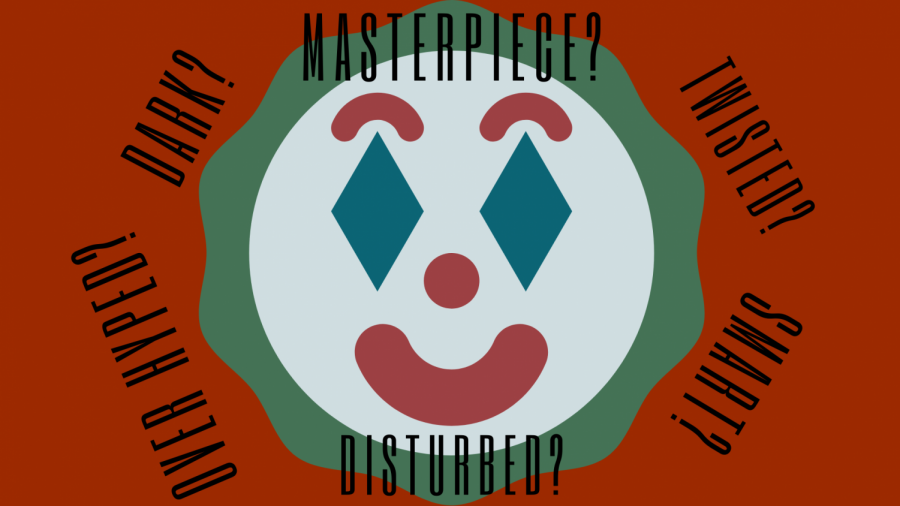OPINION: Is ‘Joker’ as smart as it thinks it is?
The dark comic book adaptation seems to think it’s saying more than it actually is
February 9, 2020
At the beginning of “Joker,” Arthur Fleck, played by Joaquin Phoenix, forces a smile as a single tear falls down his face and in this moment, the whole film encapsulates its theme and meaning.
It promises to show that a film that is an emotional look at a broken man struggling with mental illness trying to put on a “happy face” even though inside he is broken. But does it? No.
“Joker” is the kind of film that wears the clothes of much better films to disguise the fact it doesn’t have anything new or interesting to add to justify its existence.
What the film wants to be is an empathic look at how the mentally ill are ostracized by society and how the rich upper elite don’t care about people who live in poverty. At first glance, that’s something great to look at. I think discussing these themes in mainstream comic book films could get the general public to really start thinking about them. So, why does “Joker” fail? Because it takes these ideas and does nothing with them.
The film presents these ideas, knowing that issues like these exist, but then decides to backtrack on many of them to help satisfy those wanting an accessible comic book villain origin story.
Story continues below video.
Fleck is a loner. He struggles to connect with people and suffers from a disorder that causes him to laugh at inappropriate times. (The use of an actual mental disorder to give reasoning behind the Joker’s infamous laugh is worthy of a whole other conversation.)
Fleck writes in his journal, “The worst part of having a mental illness is people expect you to behave as if you don’t.”
There is something meaningful to that line. It shows how we force those with some kind of mental disability to never show it. I find that very empathetic. But then the film decides to not have that kind of sympathy in order to “disturb” the audience.
Fleck is pushed so hard by society, by those who mock and abuse him that he becomes violent. He kills three Wall Street men on the subway, an event that starts major protests. He even then kills the late night talk show host Murray Franklin (Robert De Niro) on live television.
But wait? Now the film wants to tell me that mentally ill people have the capacity to commit violent acts and I should be frighted? That doesn’t seem very empathetic.
What hinders so much of the film’s attempt to be a thoughtful examination of living with mental illness is its need to connect itself to its comic book roots. Making the murderous ‘clown prince of crime’ into a beaten down mentally ill man just causes problems.
Todd Phillips, who co-wrote and directed the film, involuntarily, or maybe intentionally, gives a portrait of society ignoring the mentally ill as the reasoning behind major violence in this country. Despite the fact that a rise in “alt-right” sensibilities being put into the minds of young white smen is what has done so. It’s obvious that Phillips knows that there is a violence issue in this country but he seems to not realize who’s really doing the violence.
Attaching real world politics to your film isn’t inherently a bad thing. “Black Panther” integrated real issues of colonialism in a major superhero film which helped benefit that film and make it feel more fresh from the other films in its genre.
But how come it doesn’t work in “Joker?” Because it doesn’t confront the material in any interesting or profound way. It would rather copy films like “Taxi Driver” and “The King of Comedy” than actually discuss the issues it presents.
Now, was “Joker” one of the worst films I saw last year? No. I sat there watching it mostly bored rather than upset or annoyed. But I’m constantly confused by the discourse surrounding this film that claims it to be this profound and haunting look at our society. Maybe if it discussed or interacted with its themes I could understand but the film is just empty.
But I guess for some people, why actually discuss the systematic issue of the mentally ill being mistreated when you can have Phoenix dance in a darkly lit bathroom as the score tells you to feel uncomfortable?




































































































































